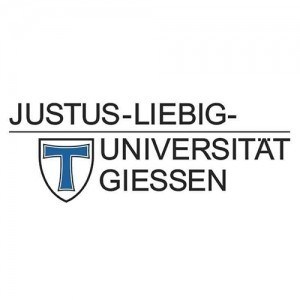Photos of university
The Master's course is offered on a part-time basis and lasts for 18 months. The first twelve months consist of monthly seminars and self-study. Two one-week seminars are held at the University of Münster at the beginning and end of the course. Otherwise, the seminars are held each month for three days (Thursday - Saturday), also in Münster. In addition, participants are to develop and complete a project at their place of work. This component is agreed between the course supervisors and the employer. The final six months of the Master's course are devoted to writing the Master's thesis and a report on the workplace project. As a result, the course is designed for professionals and strikes a reasonable balance between the needs of the workplace and the academic demands of a postgraduate course of studies.
The Master's course presents customs within the context of taxation and international trade law. Thereby, participants will understand the role that customs play in international trade and how customs relate to other areas of trade regulation. The individual subjects dealt with in the course are of practical importance to the private and public sectors. During seminars, participants are encouraged and expected to contribute to discussions and problem-solving activities. Thereby, they will improve their skills specifically for their place of work.
During the course, students will be supervised during self-study, the transfer project and Master's thesis. This will take the form of weekly chat sessions with supervisors and other students, as well as monthly group supervision sessions for the transfer project and the Master's thesis.
Upon successful completion of the course, participants will be awarded the degree "Master of Customs Administration" by the University of Münster. The title of this degree reflects the fact that this course has been specifically designed to produce strategic managers in the field of customs.
The Master's in Customs, Taxation and International Trade Law has been designed in accordance with the European Credit Transfer System (ECTS) and the PICARD Standards of the World Customs Organisation.
Lecturers
The lectures and seminars of the MCA are held mainly by professorial staff at the law faculty and the business school of Münster University. In addition, many guest lecturers are invited from the International Network of Customs Universities (INCU), international organisations, and the private and public sectors.
Educational organisation
ModulesThis section provides an outline of the course modules together with their constituent subjects. The overarching aims of each module and learning outcomes are also described. Please note that the course contents may be subject to changes according to political, economic or legal international developments.
1. World Trade System & International Commercial Law
- Decision-making and dispute settlement
- WTO agreements and legal principles
- International contractual relations and instruments
- Remedies and international arbitration
2. International Customs Instruments and Customs Legislation
- Major customs instruments and functions
- Challenges in implementation and application
- Forms of legislation
- Drafting, interpreting and enforcing legislation
3. International and European Taxation
- Tax conventions and their implementation
- Double taxation and transfer pricing
- European instruments and case law
- VAT regulation in Europe
4. Trade Facilitation and Supply Chain Security
- Concepts and methods of trade facilitation
- Information collection and risk management
- Supply chain and stakeholders
- Unilateral security programmes
5. Global Customs Compliance
- Compliance risk management systems
- Communication methods and structural measures
- Integration of CMS into operative processes and corporate environment
- Documentation, audit, controls, certification of CMS
6. Transfer project
The transfer project is a core element of the MCA programme. The transfer project requires participants to tackle an issue of practical importance for their organisation. It serves to implement the theoretical knowledge acquired during the course within a practical environment.
7. The Master's Thesis
For the Master's thesis, students choose a subject of direct practical relevance to their area of expertise. The thesis shows that the student is able to investigate a subject independently to a high academic standard within a set period of time.
Forms of assessment
In order to obtain the "MCA" degree, participants must satisfy the following requirements:1. Module Examinations
Modules one to five will each conclude with a written examination.
2. Transfer Project
Development of a transfer project and submission of a written report explaining the transfer project
3. Master's Thesis
Completion of a thesis which examines a subject of practical importance
Course objectives
Since the structure of customs represents a key tool for economic growth and social development, it is crucial that customs administrations operate effectively and with integrity. The objectives of the course therefore are:- to provide advanced training for persons involved in customs matters, both in the public and private sectors
- to have qualified future strategic managers in the public and private sectors of customs, who can formulate strategies that reflect the international principles of the World Trade Organisation (WTO) and the World Customs Organisation (WCO), as well as the economic conditions brought about by globalisation
- to increase the motivation and performance of future management staff in order to enable them to perform new tasks relating to customs in a globalised world
Language requirements
Students must be able to participate in oral class discussions, complete written examinations and write extended essays. Applicants must demonstrate their English ability by an officially recognised test or equivalent.Required standard:
TOEFL: minimum score:
- paper-based 575
- computer-based 233
- internet-based 88
APIEL: 4
Academic requirements
In order to apply for the MCA you must:- have a four-year university degree with 240 credits according to the European Credit Transfer System
- have least one year of work experience in customs and trade
- prove your fluency in written and spoken English (e.g. by a TOEFL certificate or equivalent)
Applicants with a three-year university degree can also be considered, provided they have at least three years of professional experience in a relevant field.








